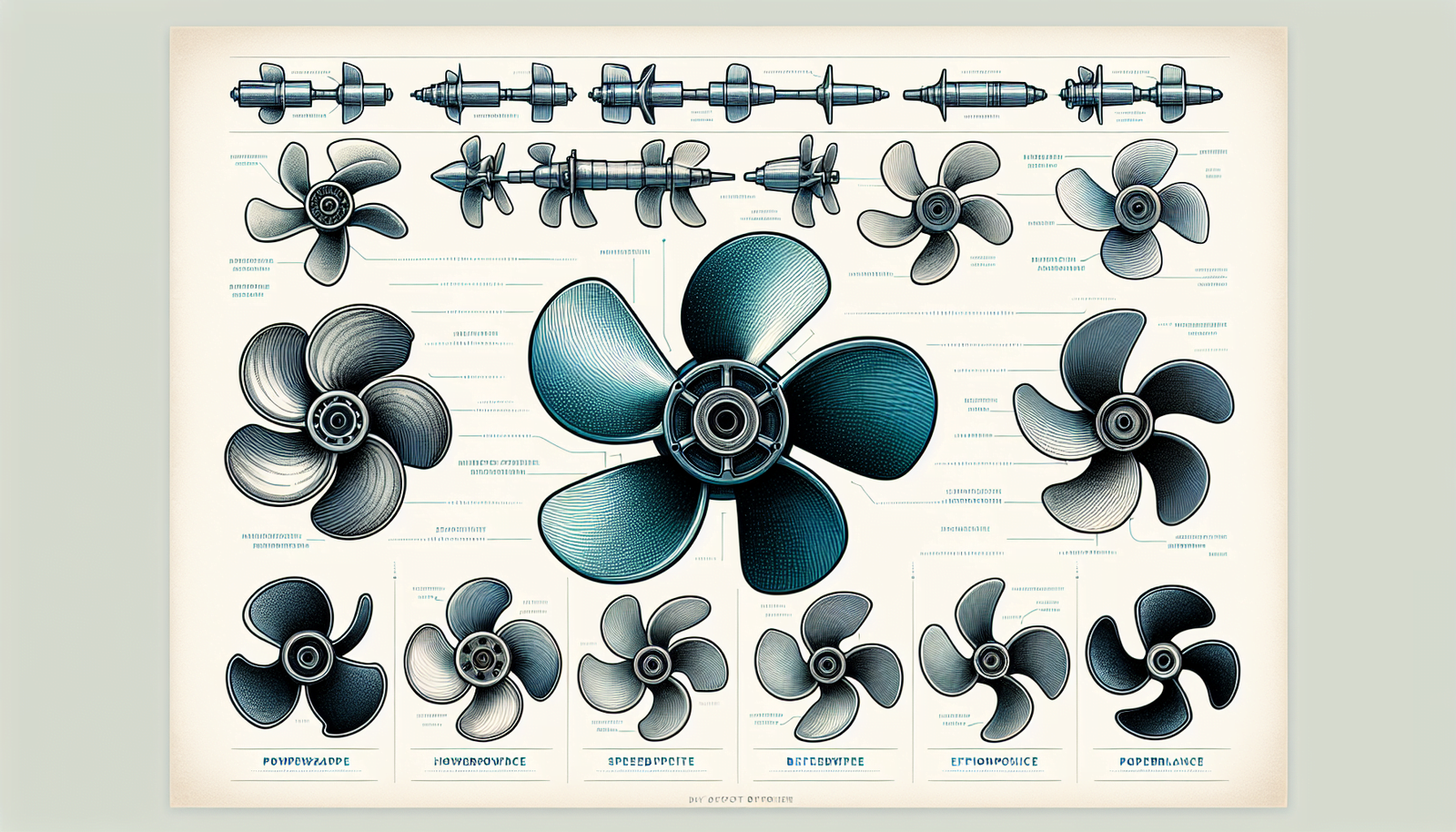Selecting the right propeller for your specific boat engine doesn’t have to feel like navigating through unchartered waters. This article will guide you through the process and break down all the technical details in a clear, relatable way. Whether you’re a novice boater or a seasoned mariner, you’ll gain a deeper understanding of propeller types, materials, and performance considerations, enabling you to make the best choice for your boat. With exactly the right propeller, you’ll maximize your boat’s potential and ensure smooth, delightful sailing experiences every time.
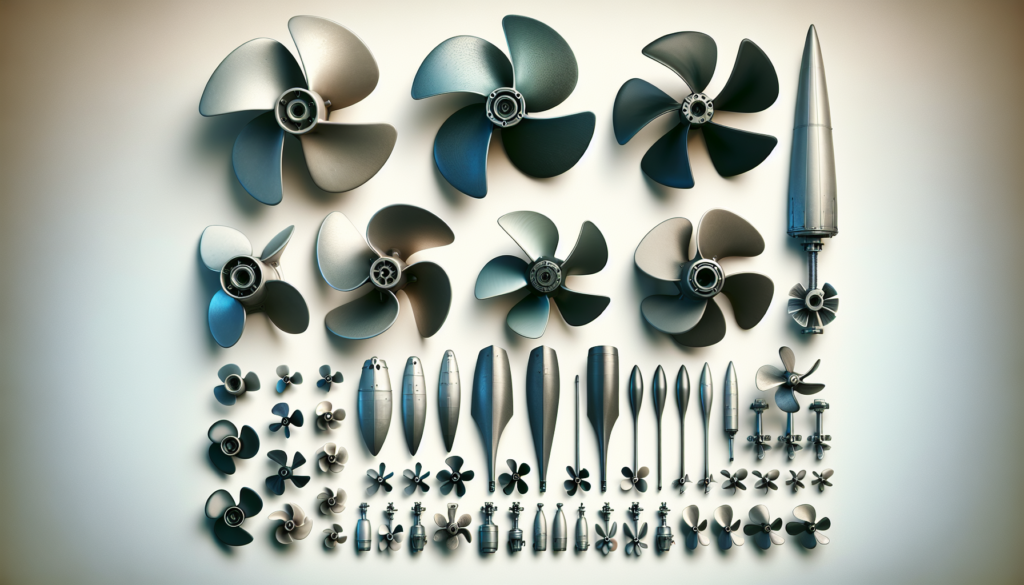
Understanding Boat Propellers
Boat propellers are fascinating pieces of equipment, not just because of their key function in propelling the boat, but also due to their complexity. They may seem simple at surface level, but there is a great deal of science and technology integrated into these structures.
Basics of Marine Propellers
At its core, a boat propeller is designed to convert rotary motion from the engine into thrust, which pushes the boat through the water. The propeller blades are shaped to generate a difference in pressure on either side, creating force that moves the boat forward.
Types of Boat Propellers
There are several different types of propellers, each suited for specific types of boats and conditions. The most common types include the three-blade propeller, which is popular for its balance of speed and performance; the four-blade propeller, which offers better acceleration and stability; and the two-blade propeller, which is most efficient and quiet, ideal for sailboats.
Function of a Boat Propeller
The main function of a boat propeller is to propel a boat by creating a pressure difference between the front and the rear sides of the blades. This is achieved by the design and orientation of the blades, which cut through the water, generating lift and forward thrust. The propeller’s performance ultimately depends on various factors, including its size, shape, material, number of blades, and engine power.
Understanding Your Boat’s Engine
The engine is the heart of a boat, and understanding its workings is vital to achieving optimal performance.
The Importance of Knowing Your Boat Engine
Understanding your boat’s engine allows you to make informed decisions, which can result in improved boat performance and safe boating practices. It helps you understand why your engine behaves the way it does, and also how it interacts with other parts of your boat, such as the propeller.
Types of Boat Engines
Boat engines can be broadly categorized into two types: inboard and outboard. Inboard engines are located inside the boat’s hull, providing a low center of gravity and excellent balance. Outboard engines, on the other hand, are installed at the back of the boat, offering practicality and ease of maintenance.
How Does The Type of Engine Impact Propeller Choice
The type of engine directly impacts the choice of propeller, as the propeller must be compatible with the engine’s horsepower and operating rpm range. Additionally, inboard engines typically require different types of propellers than outboard engines due to their different placement and operation.
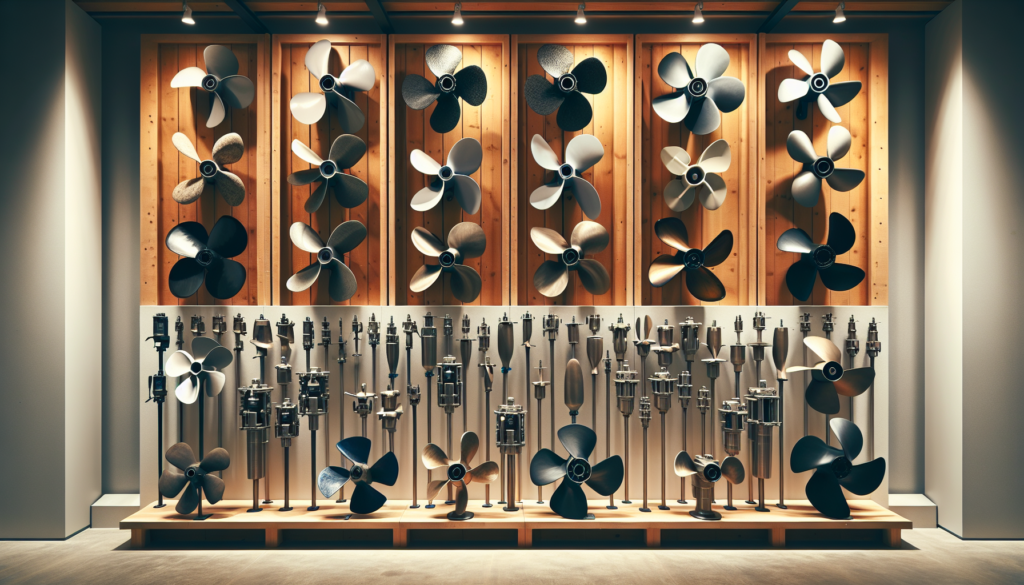
The Correlation Between Propeller Size And Boat Engine
Understanding the relationship between the propeller size and boat engine is crucial for optimal boat performance.
Determining Propeller Size
The choice of propeller size is primarily determined by the engine’s power and the boat’s size, weight, and intended use. Bigger boats or those with more powerful engines usually require larger propellers.
Influence of Boat Engine on Propeller Size
The boat engine’s horsepower and revolutions per minute (rpm) greatly influence the size of the propeller. A bigger and more powerful engine will need a larger propeller to effectively convert the engine’s power into thrust.
Key Factors to Consider
Apart from the boat engine’s specifications, other key factors to consider include the boat’s weight, hull shape, and intended use. For instance, a lightweight speed boat will need a different type of propeller compared to a heavy, slow-moving barge.
The Material of the Propeller
Propellers can be made from a variety of materials, each offering its own advantages and disadvantages.
Types of Materials Used in Propeller
Propellers are most commonly made from materials such as aluminum, stainless steel, and some high-performance plastics. Aluminum is lightweight, affordable, and suitable for lower horsepower engines. Stainless steel, while more expensive, is stronger and offers better overall performance.
The Impact of Material on Propeller Performance
The material used in the propeller significantly affects its performance. For example, a stainless steel propeller is typically more efficient than an aluminum one as it can be made thinner and can hold its shape better at high speeds.
Choosing The Best Material For Your Engine
Choosing the best material for your propeller depends on a variety of factors, including the type and power of your engine, your budget, and your personal requirements in terms of performance and maintenance.
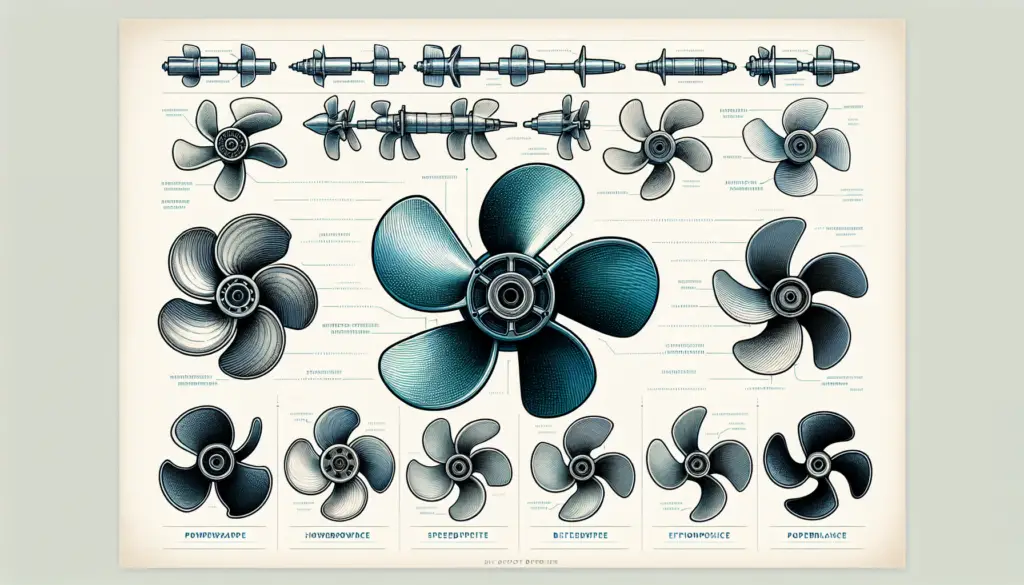
The Number of Blades
The number of blades on a propeller has a significant impact on its performance.
The Role of Blades in Propeller Performance
Traditionally, three-blade propellers are the most common, offering a good balance of speed and efficiency. However, four-blade propellers can provide better acceleration, handling, and lift, especially at low speeds, making them ideal for activities such as water skiing.
Choosing the Right Number of Blades for Your Specific Engine
The choice of blade quantity depends on your engine’s power and your performance preference. Generally, a higher horsepower engine can benefit from a propeller with more blades, as it can better utilize the increased blade area.
Understanding Blade Geometry
Understanding blade geometry is paramount in determining propeller efficiency. Factors such as the blade’s length, pitch, rake, and skew all play a role in how effectively the propeller performs its job.
The Pitch and Diameter of the Propeller
Pitch and diameter are vital aspects of a propeller’s design and impact how well it performs.
What is Pitch and Diameter?
The pitch of a propeller can be thought of as the distance that a propeller would move in one revolution. A higher pitch results in greater speed but reduced acceleration. The diameter is simply the distance across the circular area swept by the propeller blades during rotation.
How Pitch and Diameter Affect Propeller Performance
A high pitch propeller moves the boat faster at top speed but may struggle with acceleration and maintaining speed at low rpms. Conversely, a propeller with a lower pitch will have great acceleration and low-speed pull but may lack top-end speed. The diameter also influences the thrust generated, where a larger diameter can move more water, producing more thrust.
Choosing The Right Pitch And Diameter For Your Boat Engine
Choosing the right pitch and diameter for your boat engine will depend on a range of factors, including the type and power of your engine, the weight and design of your boat, and its intended use.
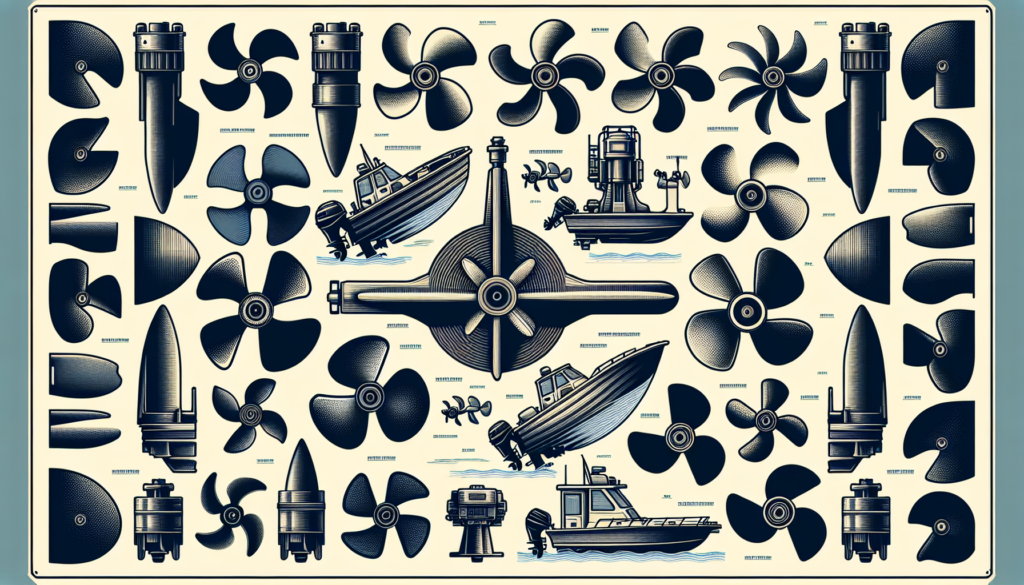
Special Conditions Affecting Propeller Choice
Certain special conditions may require specific types of propellers.
Operating in Shallow Waters
If you often operate in shallow waters, you might want to consider a four-blade propeller. They offer better performance at lower speeds and tend to lift the stern of the boat higher, reducing the chance of hitting the bottom.
High-Altitude Boating
At higher altitudes, air and water density decrease, which can reduce engine and propeller performance. Opting for a propeller with a lower pitch can help maintain engine rpm and performance in these conditions.
Fishing or Towing Water Skiers
Fishing boats often require propellers that perform well at low speeds, while boats used for water skiing need propellers that can provide quick acceleration.
Brand Consideration
While it’s important to consider the functionality of the propeller, brand reliability also counts.
Selecting A Reputable Propeller Brand
Choosing a reputable brand ensures you’re getting a quality product, backed by proven engineering capabilities. It also offers the benefit of customer support and perhaps even warranty.
Brand Comparison for Propellers
While you may have your personal preference, don’t be afraid to compare different brands, their offerings, and customer reviews to ensure you make an informed decision.
Brand Versus Compatibility with The Boat Engine
While the brand is important, compatibility with your boat engine is paramount. The best brand of propeller will always be the one that works best with your specific engine and boat type.
Maintenance and Replacement of Propellers
Regular maintenance is necessary to get the most out of your propeller.
The Importance of Propeller Maintenance
Regular propeller maintenance helps prolong its life, prevents breakdowns, and ensures optimal boat performance.
Detecting and replacing A Faulty Propeller
Keeping an eye out for any signs of damage, such as vibrations, decreased performance, or visible damages such as dents and nicks helps in identifying a faulty propeller. Replacement should be done promptly to avoid further harm to your boat engine.
Upgrading or Modifying Your Propeller
Over time, you may need or want to modify or upgrade your propeller to improve performance or meet changing requirements. Always consult an expert to ensure you make the right decision.
Consulting With Experts
Consultation with experts provides the best results when it comes to choosing a propeller.
Leveraging Professional Insight for Choosing Propeller
Propeller professionals have the experience and knowledge to guide you in making the most appropriate choice based on your specific needs, ensuring optimum performance at all times.
Finding Reliable Sources of Advice
Look for reputable boat dealers, propeller manufacturers, or boat enthusiasts with a wealth of experience. They will provide reliable advice tailored to your specific situation.
Understanding the Limitations of Self-diagnosis
While there’s a lot you can learn on your own, a professional’s perspective can be invaluable. They might identify aspects you may have overlooked and offer advice that can significantly improve your boating experience.
In conclusion, choosing the right propeller for your boat engine involves understanding various factors, including the type of engine, propeller size, number of blades, pitch, and diameter, among others. It’s always recommended to consult with a professional to ensure you make the most suitable decision for your specific boating needs.

